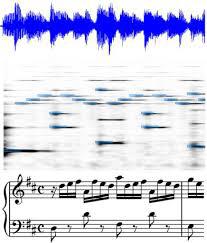Search Results for author: Taketo Akama
Found 8 papers, 1 papers with code
Naturalistic Music Decoding from EEG Data via Latent Diffusion Models
no code implementations • 15 May 2024 • Emilian Postolache, Natalia Polouliakh, Hiroaki Kitano, Akima Connelly, Emanuele Rodolà, Taketo Akama
In this article, we explore the potential of using latent diffusion models, a family of powerful generative models, for the task of reconstructing naturalistic music from electroencephalogram (EEG) recordings.
A Computational Analysis of Lyric Similarity Perception
no code implementations • 2 Apr 2024 • Haven Kim, Taketo Akama
In musical compositions that include vocals, lyrics significantly contribute to artistic expression.
HyperGANStrument: Instrument Sound Synthesis and Editing with Pitch-Invariant Hypernetworks
no code implementations • 9 Jan 2024 • Zhe Zhang, Taketo Akama
GANStrument, exploiting GANs with a pitch-invariant feature extractor and instance conditioning technique, has shown remarkable capabilities in synthesizing realistic instrument sounds.
Annotation-free Automatic Music Transcription with Scalable Synthetic Data and Adversarial Domain Confusion
no code implementations • 16 Dec 2023 • Gakusei Sato, Taketo Akama
To tackle this issue, we propose a transcription model that does not require any MIDI-audio paired data through the utilization of scalable synthetic audio for pre-training and adversarial domain confusion using unannotated real audio.
Automatic Piano Transcription with Hierarchical Frequency-Time Transformer
1 code implementation • 10 Jul 2023 • Keisuke Toyama, Taketo Akama, Yukara Ikemiya, Yuhta Takida, Wei-Hsiang Liao, Yuki Mitsufuji
This is especially helpful when determining the precise onset and offset for each note in the polyphonic piano content.
Self-supervised Auxiliary Loss for Metric Learning in Music Similarity-based Retrieval and Auto-tagging
no code implementations • 15 Apr 2023 • Taketo Akama, Hiroaki Kitano, Katsuhiro Takematsu, Yasushi Miyajima, Natalia Polouliakh
In the realm of music information retrieval, similarity-based retrieval and auto-tagging serve as essential components.
GANStrument: Adversarial Instrument Sound Synthesis with Pitch-invariant Instance Conditioning
no code implementations • 10 Nov 2022 • Gaku Narita, Junichi Shimizu, Taketo Akama
In addition, we introduce an adversarial training scheme for a pitch-invariant feature extractor that significantly improves the pitch accuracy and timbre consistency.
A Contextual Latent Space Model: Subsequence Modulation in Melodic Sequence
no code implementations • 23 Nov 2021 • Taketo Akama
We propose a contextual latent space model (CLSM) in order for users to be able to explore subsequence generation with a sense of direction in the generation space, e. g., interpolation, as well as exploring variations -- semantically similar possible subsequences.




